How Schools Can Do a Better Job at Teaching Executive Functioning Skills
At Calm Classroom, we place a large focus on helping students develop their executive functioning skills. Executive functions are a set of advanced brain skills that help us to process memories, self-regulate our emotions, and more. Kids with deficits in executive functioning may have a harder time in life, including in the workplace and in relationships.
Schools can make an enormous difference for their students in terms of improving executive function. Just like any other skill, most executive functioning skills can be learned. Even if some students have deficits in these skills, teaching them at school (in the same way we teach skills like writing or counting) can level the playing field and help all students leave your classroom well-prepared for the world.
Here’s how schools at every level can do a better job at teaching executive functioning skills to their students.
What Are Executive Functioning Skills?
Experts are still refining the exact definition of what “executive functioning skills” are. But in general, they’re the more advanced skills that the brain is responsible for.
The brain has a wide range of important skills, from transmitting pain signals to communication to muscle coordination. Executive functioning skills lie at the top of the pyramid 一 they’re the last to develop, and are generally considered the most advanced.
Our brains’ executive function helps us have self-control and act in ways that align with our short- and long-term goals. There are three main brain functions involved in executive functioning, which are:
- Working memory: Ability to retain and use pieces of information over time
- Flexibility: Ability to adapt our thinking to different scenarios
- Self-control: Ability to resist impulses
Some examples of the brain’s most important executive functioning skills include:
- Processing memories
- Regulating emotions
- Time management
- Self-motivation
- Responsible decision-making
- Planning for the future
- Goal-setting
- Abstract thinking
Having strong executive functioning skills helps kids succeed throughout their lives. Strong executive functioning skills can:
- Improve academic achievement
- Strengthen relationships
- Improve leadership skills
- Help kids avoid distractions
- Improve classroom behaviors
- Build empathy
- Lead to more stable communities
- Help kids make healthy choices
- Create a more competent workforce
Why Schools Need to Help Students Develop Executive Functioning Skills

Nobody is born with executive functioning skills; they develop over time. As kids get older, they usually gain more and more executive functioning skills. A 14-year-old usually has a stronger ability to manage their time than a 6-year-old.
However, kids’ brains have a lot of growing to do, and the part of the brain that’s responsible for executive function (the prefrontal cortex) is the last to develop. This is why it’s so common for teenagers and young adults to have poor judgment or engage in risky behaviors. Their executive functioning skills 一 which could help them take a step back and make a responsible decision that’s in line with their goals 一 aren’t yet fully developed.
On top of that, many kids also have deficits in executive function, which means that their executive functioning skills may be less developed than their peers. There are many biological and environmental reasons why a child could have an executive functioning deficit. Some of the most common ones include:
- Neurodevelopmental disorders like attention-deficit hyperactivity disorder (ADHD)
- Exposure to alcohol or drugs in-utero
- Being a victim of a traumatic experience like childhood abuse
- Brain injury
- Substance use
These factors are more common than you may think. Research shows that more than two-thirds of students will go through at least one traumatic event before they turn 16. Around 9% of school-aged children are affected by ADHD. This means that many of your students may have executive functioning deficits.
Luckily, research shows that most executive functioning skills can be learned. Just like any other skill that’s taught in schools 一 such as arithmetic or literacy 一 kids can practice and master important executive functioning skills like time management or emotion regulation.
Schools play an important role in teaching executive functioning to young people, especially those who have gone through trauma.
By taking an active stance toward teaching executive functioning, teachers can ensure that their students are equipped with these important life skills as they move forward in life. Teaching executive functioning in schools can also decrease gaps in skills and level the playing field for kids with executive functioning deficits.
On top of this, because of the relationship between trauma and executive functioning deficits, teaching these skills is an important part of a trauma-informed SEL curriculum.
How Schools Can Better Teach Executive Functioning to Students
On one hand, your school may be teaching some executive functioning skills without even realizing it. For example, it’s common for teachers to help kids practice raising their hand when they want to speak 一 which could strengthen impulse control.
On the other hand, many schools need support in teaching these skills to their students in a more intentional way.
If you feel like your school can do a better job helping students strengthen their executive functioning skills, then here are some things you need to know.
In elementary school
Elementary school students are just beginning to develop their executive functioning skills to begin with. Especially if you teach younger grades, it may not yet be obvious which of your children have executive function deficits. You may notice that some of your students have trouble with impulse control and emotion regulation (having tantrums), which could be indicative of an executive function deficit.
In general, teachers can focus on helping kids of this age build their social-emotional abilities. Identifying their own and others’ emotions is a good start. Young kids can also learn abilities like sharing, taking turns, and raising their hands that may help with impulse control.
To teach executive functioning skills to elementary school students, consider:
- Using visual aids to remind children of social expectations
- Praise positive behaviors
- Set, and follow, a classroom schedule
- Use books and stories to help kids identify emotions
- Teach age-appropriate mindfulness skills to strengthen self-regulation
- Model skills like organization
In middle and high school
As students enter adolescence, they start developing more advanced executive functioning skills like goal-setting, planning, and abstract thinking. Kids at this age with executive function deficits may have a hard time setting goals for themselves or following through with plans.
Middle and high school teachers can help their students start thinking about the future. What type of adult do they want to become? Where do they see themselves in 5 years? What steps can they take to get there? Helping them strengthen their ability to think in this way can increase the odds that they enter young adulthood equipped with strong executive functioning skills.
Some specific practices you can use to teach executive functioning skills to middle and high school students include:
- Help them set both short- and long-term goals.
- Create opportunities for self-monitoring
- Teach emotional self-regulation skills like deep breathing
- Practice mindfulness as a class
- Use visual aids for time management (like analog clocks)
- Teach the skill of organized note-taking
- Review lessons before continuing with new information
A trauma-informed SEL curriculum is an important component of a well-rounded classroom. Through SEL lessons like mindfulness, your school can help kids of all ages strengthen their executive function and be more likely to grow up to be well-functioning adults.
For more tips and ideas on SEL and mindfulness lessons, check out the Calm Classroom blog or reach out to us for a free trial.





SIGN UP FOR OUR NEWSLETTER